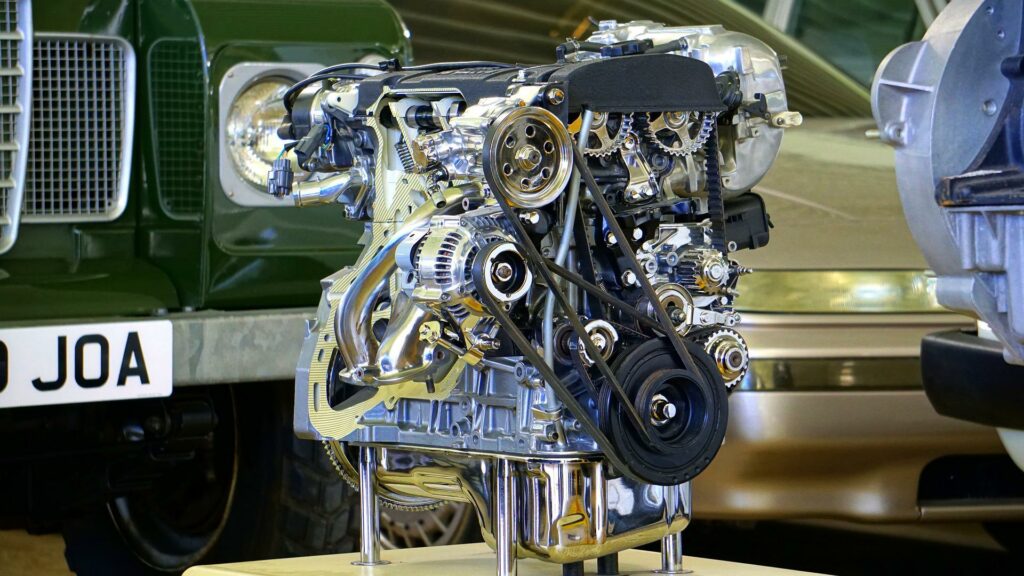The EU directive on CO₂ limits stipulates that no new cars and vans with combustion engines may be registered in the European Union from 2035. If this directive remains unchanged, this could have far-reaching consequences: A boomerang for climate protection may be looming.
No compromises with the combustion engine
In the second week of June 2022, the European parliamentarians dealt with the Fit for 55 package on environmental targets at a plenary session. The project aims to drastically reduce climate-damaging CO₂ emissions by 2030. It also includes a directive proposed by the EU Commission and already approved by the Environment Committee. It concerns new CO₂ limits for cars and vans.

A short passage in this directive forces the end of the internal combustion engine in the EU from 2035 onwards. A fleet target value of 100% reduction of CO₂ emissions in the vehicle categories passenger cars and light commercial vehicles was formulated for the manufacturers. This corresponds to a ban on the registration of new combustion engines from 2035, which would also affect engines for synthetic fuels, which Porsche, for example, wants to use for its 911.
The CO₂ emissions of the vehicle in operation apply to the fleet target value. It is true that synthetic fuels are produced with carbon that was previously extracted from the air by capture, so that the environmental balance is basically neutral. But that does not count for the EU Commission.
What does this mean for new car buyers from 2035?
The automotive industry has known this for a long time and has been planning accordingly for some time, and the general population is now also coming to this realisation: From 2035 onwards, there will be no more new combustion cars to buy in Europe (and probably in many other parts of the world). However, the used car market with internal combustion vehicles is likely to continue for a while. However, it is to be expected that life will be made difficult for them.
There will probably be more and more environmental zones with rigid regulations, so that older combustion vehicles will soon no longer be allowed to drive anywhere. Fuel prices could rise because the mass market is dwindling. Even before 2035, many people will probably no longer buy a combustion car, because from 2035 onwards they will find it difficult to get rid of them as used cars, and only at a considerable discount.
It is irrefutable: in the near future, most cars will be electric. Electric lithium-ion batteries and hydrogen-powered fuel cells could be the two favoured battery concepts.
Is the project as environmentally friendly as it seems?
No, it isn’t. Electric cars are only really environmentally friendly in terms of driving emissions if they are fuelled with green electricity. The hydrogen for the fuel cells would also have to be produced with it, and here the electricity demand is particularly high.
How environmentally friendly an e-car is today depends on the emissions during electricity generation. If the electricity comes from a fossil fuel power plant, harmful greenhouse gases are produced. However, the new EU regulation does not take this system into account, nor does it take into account the environmental damage caused by the mining of raw materials for batteries. The EU regulations only ever apply to CO₂ emissions on the road. Even innovative carmakers like BMW, who had planned a complete switch to electromobility, criticise this. However, there are reasons for the current EU environmental calculation.
Fleet emissions were regulated for the first time in 2009. At that time, there were so few electric cars that a quick breakthrough of this type of drive was not believed. From 2010 to around 2018, the focus was therefore primarily on reducing the consumption of internal combustion engines, which was also successful. This can also be seen in the fleet limits: in 2015, 130 g CO₂/km still applied; since 2020, it has only been 95 g CO₂/km.
Allerdings holte die Elektromobilität in den letzten Jahren derartig auf, dass man in der Industrie schon länger auf das Ziel der Nullemissionen im Verkehr hinsteuerte. Auch wuchsen in den letzten Jahren die Sorgen um das Klima sehr stark. Daher ist der EU-Beschluss der Verbrennerverbots ab 2035 gar nicht so ambitioniert, wie es scheint. Nun muss die Energiewirtschaft nachziehen und möglichst schnell auf erneuerbare Energien umstellen.
